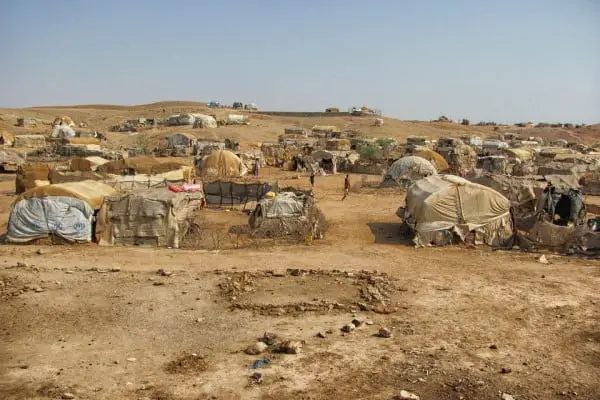This page contains affiliate links. This means if you a follow a link and make a purchase, at no additional cost to you, Humanitarian Careers will receive a commission. Thank you for supporting the site.
Working in humanitarian aid is an exciting, but demanding, career. There are several requirements people need to work in humanitarian aid. Humanitarians work in difficult and often insecure locations delivering aid to people affected by crises, conflicts and poverty and so need the right skills and experiences to be able to meet challenges and manage projects effectively. Humanitarian aid workers are also required to ensure the security of aid delivery as well as that of their staff whilst ensuring project beneficiaries receive the assistance they need. This means aid workers must have a wide range of knowledge and tools at their deposal.
If you’re aiming for a career in humanitarian aid, the 13 requirements outlined here are some of the key attributes and skills you are going to need…
Complete a Higher Education Degree
Jobs in humanitarian aid almost always require a degree. Although it is possible to enter the aid sector without a degree, having completed university-level education is one of the top requirements to work in the aid sector. Usually, humanitarian aid NGOs require a relevant master’s degree, however it is possible to get an entry-level job in the aid sector with only an undergraduate. However, expect humanitarian jobs to require a masters level education.
As having a master’s degree is one of the top requirements to work in humanitarian aid it is not always crucial what subject your undergraduate is in. However, if you begin to study at bachelors’ level and know you want to work in aid, select an undergraduate degree such as humanitarian action, international development, global security or international relations. Although not often specifically required by humanitarian NGOs, a relevant undergraduate can help you enter the aid sector.
Having a master’s degree is often listed as a requirement on humanitarian job recruitment pages. As this requirement is so common, if you are selecting a master’s degree – subjects such as development studies, development economics, humanitarian aid or NGO management are good choices to meet this requirement. If you want to work in technical roles in the aid sector, these job also often require relevant masters, for example as in finance, logistics, water and sanitation or nutrition.
Be Willing to Travel Abroad
Humanitarian workers travel the world running projects assisting people affected by disasters, conflicts and poverty. One the exciting things about a career in international aid is that the job allows for regular travel to different, exciting and sometimes challenging places. One the of the most important requirements to work in humanitarian aid in the willingness to travel internationally, move frequently and enjoy being immersed in new cultures.
One of the main requirements of being a humanitarian aid worker is being able to be flexible in your travel plans. Aid workers move where the crises are. This can mean last-minute travel and frequently moving between countries on different missions as needed. Humanitarian NGO’s require staff to be flexible in their movements and be dedicated enough to humanitarian work to often drop their personal lives to scramble to the next mission.
Many people who work in the aid sector enjoy the travel and accept the flexibility required when working in aid. However, as the job of humanitarian worker requires long periods spent abroad, away from family, friends and familiar places, it can also become a more difficult part of working in international aid. One of the most important requirements for working in humanitarian aid is being willing to dedicate yourself to a life of frequent travel, even when it becomes less glamorous.
Make Sure You Can Work with People from Other Cultures
Teams implementing humanitarian projects come from all over the world. Humanitarian work requires people who are able to build strong relationships quickly with people from many cultures and to operate effectively together. Humanitarian missions are made up of people from the country where the projects are being implemented, as well as people from different developed and developing countries. Working well with people from all different backgrounds is one of the top requirements of humanitarian work.
Working on humanitarian projects with a diverse team can mean taking onboard new ideas, fresh perspectives and different approaches. However, multi-cultural teams are also made up of people with different experiences and backgrounds. Working in humanitarian aid requires people who are able to overcome the differences that inevitably rise from these varied backgrounds and build on the new ideas that arise from the diversity of the humanitarian team.
An important requirement of working in humanitarian aid is being able to build strong relationships quickly with many different people from all over the world. Humanitarian workers are often deployed at short-notice in crises zones and are required to work well with the team already in place as well those deploying in from other countries. Having the right attitude to work well in diverse teams is a crucial requirement to be successful in international aid.
Humanitarian Aid Online Courses
If you are looking to work in humanitarian aid, we highly recommend the online course International Humanitarian and Development Careers. We think it provides one of the best overviews of the humanitarian sector and gives valuable insights for those searching for jobs in humanitarian aid. Follow the link to the course’s page for more information.
The International Humanitarian Law Theory and Practice online course offered by Leiden University in the Netherlands provides a fantastic theoretical overview of humanitarianism. We think it’s one of the top online courses for those who want to understand the basics of international humanitarian law. Click the link to visit the course’s page for more information.
We also think the Humanitarian Action Response and Relief online course offered by Coventry University is a must for anyone looking to become a humanitarian aid worker. It only takes around three weeks to complete and would be a major addition to the CV of anyone looking to work in the aid sector. The link is to the course’s page.
Get Strong Problem-Solving Skills
Humanitarian workers are faced with constant challenges. Working on aid projects in difficult contexts such as conflict or disaster zones results in a wide range of problems that need to be overcome. A highly important requirement of working as a humanitarian is being able to overcome problems as they arise, often with limited resources, and be able to ensure aid projects are implemented successfully. Problem solving regularly is stated as one of the top requirements for working in humanitarian aid.
Humanitarian projects are ran in places affected by armed violence, natural disasters or extreme poverty. Managing projects in these areas requires a large number of problems to be overcome, from securing logistics and ensuring security, to working with local governments and negotiating humanitarian access. Aid agencies require people who are experienced in problem solving and able to meet the challenges posed by implementing humanitarian projects.
As problem solving skills are one of the top requirements for working in humanitarian aid, NGOs require people who not only have the skills needed to overcome challenges, but also have the correct attitude. Humanitarian missions require staff who are solutions focused and not overcome when problems arise. Humanitarian workers need to be able to use practical skills to overcome issues, as well as be able to take a flexible approach and keep sight of the bigger picture of their programmes and results.
Be Able to Work Well in a Team
Delivering humanitarian aid involves well-coordinated teams working effectively together. One of the most important requirements to work in international aid is being a strong team player. Humanitarian NGO’s look for staff with experience in working as part of a team to achieve objectives and often list team work as one of the required competencies for their jobs.
Humanitarian workers need to coordinate across many different functions, such as programmes, logistics, finance and management to ensure their projects are able to achieve the objectives. Being able to build a strong team that is united in achieving the projects aims successfully, whilst also able to overcome the challenges aid projects often face, is one of the top requirements for those working in humanitarian aid.
Humanitarian NGOs require staff with many types of team work skills. These include leadership, which is required to give aid projects the direction and oversight needed, as well as those with good skills in team building and ensuring the team is cohesive. Team work is also a key requirement for working as a humanitarian because aid workers are often required to change teams often as they move between duty stations and NGO’s need staff who can work well in a new team quickly.
Make Sure You Can Take Initiative and Work Independently
As well as being able to work well in a team, humanitarian workers are required to be able to take initiative and work independently when needed. Humanitarian responses are complex operations. Working in humanitarian aid requires being able to review situations and take actions as they are needed. This can be done in cooperation with the team, but often leadership and initiative is needed to manage aid projects in frequently changing contexts.
Taking initiative is an important requirement for working in humanitarian aid as often those managing aid projects are not able to rely on direct support. Humanitarian field work is often done in remote, dangerous or hard to reach locations, and aid workers need to be able to take decisions rapidly. Communication can also be an issue during humanitarian responses as infrastructure is damaged and so aid workers must be able to make effective decisions by taking initiative.
Being able to work independently is also an important requirement for working in humanitarian aid. At times humanitarian workers will be without the support of their colleagues or unable to reach support teams based away from the field locations and so being able to work without support is a key requirement for aid workers. Humanitarian NGOs expect aid workers to know
Be Able to Adapt to Changing Situations
Humanitarian aid projects assist people affected by crises and armed conflicts, as well as those living in poverty. The contexts that aid projects are ran in are volatile and changeable. This requires aid workers to be able to adapt quickly to situations as they happen. Humanitarian workers are also required to be flexible – altering how, where and when they are able to work as conflict and disaster responses develop.
Flexibility is one of the most important requirements for an aid worker. This applies to running humanitarian responses in changeable contexts such as disaster affected areas or war zones, as well as to how humanitarian aid workers need to live and work. Humanitarian workers are required to move frequently as different responses need different staff members. Humanitarian workers must be able to adapt quickly to new settings and be flexible with where and how they work.
Humanitarian responses often have to change plans as situations develop and crises unfold. Aid workers are required to also change how they run aid programmes as contexts unfold. Sometimes this can mean ending a project early as humanitarian access or security becomes difficult, or moving the location of a project as a population migrates. Aid workers face many changes as programmes develop and therefore are required to have a high degree of adaptability.
Have Excellent Project Management Skills
Humanitarian projects need strong oversight. Aid agencies require staff that have the technical skills and the competencies to manage aid projects effectively. This can include project cycle management, budget and financial management, as well as grant management and project development. All positions within a humanitarian response require an amount of project management skills and aid NGO’s look for staff with some experience in project management.
Strong project management skills is one of the most important requirements to work in the aid sector. Aid agencies often recruit people with certified project management qualifications; however, these are not always a formal requirement. Strong skills in organisation, prioritisation, developing ideas and creating effective workplans are all requirements to be successful in humanitarian aid that do not need to learnt by doing formal project management training.
Humanitarian programmes are complex projects with many factors. Humanitarian workers are required to be able to multi-task effectively whilst managing many different workflows. Aid projects also often follow standard project management cycles of identification, planning, set-up, implementation, transition and evaluation. This means that humanitarian workers also require a good knowledge of project cycle management.
Be Able to Assess Situations Well
Humanitarian projects intervene in communities affected by disasters, conflicts or poverty. This means humanitarian workers need to able to assess the situations affecting these communities, as well as analysis the context in which the projects they are running operate in. Good skills in understanding different contexts and how situations develop as well as how to engage with communities to understand their needs are all fundamental requirements to working in humanitarian aid.
When a humanitarian response is established, assessments are carried out to understand the needs the affected community. Humanitarian aid workers are required to undertake assessments effectively and be able to source full and accurate information on a community’s needs so that effective interventions can be developed. As humanitarian projects develop, aid workers are required to continuously re-assess to make sure the programme is still meeting the needs of beneficiaries.
Humanitarian projects are often ran in areas that have significant security threats. Humanitarian workers can respond to armed conflicts, or in areas where law and order has broken down. This means humanitarian workers are required to be able to assess security situations continuously and manage themselves and their teams so as to minimise the risk of threats. Security management and assessing security situations is one of the most important requirements for working in humanitarian aid.
Ensure You Want to Learn from Others and Explore New Ideas
Humanitarian responses aim to serve a community affected by armed violence, natural disasters or poverty. It is important that these communities play an active part in determining the aid they receive and the projects that are run by NGOs to help them. Therefore, aid workers are required to able to work closely with community members when running humanitarian projects and be able to learn from them a community’s needs so as to best help the population affected.
Humanitarian teams are made-up of aid workers from all over the world. This means that aid workers need to be able to take ideas, inspiration and sometimes constructive criticism from others who have different perspectives. Humanitarian workers are required to be able to take the good ideas from people with many different backgrounds and world views and combine them so as to best provide for the project’s beneficiary.
It is important that humanitarians work collaboratively in order to run aid projects effectively. This means aid workers are required to build strong relationships both within their NGO and with external stakeholders. Being able to exchange ideas, learn from different perspectives and incorporate different thinking is a core requirement to being a humanitarian aid worker.
Be Able to Work in Stressful Situations
Humanitarian responses send aid workers into highly stressful, often dangerous situations. Areas affected by conflict and disasters, or places with extreme poverty, are not easy places to work. Humanitarians are required to operate for extended periods of time in difficult locations and be able to remain claim, focused and clear to achieve the projects objectives. Being able to work in stressful situations is one of the most important requirements for a humanitarian aid worker.
Humanitarian workers are regularly deployed into active conflict zones, or areas where lawlessness and criminality are high due to the after effects of a disaster or extreme poverty. This means aid workers can be faced with security incidents such as robberies, muggings, armed attacks and potential kidnapping. As a result, aid workers are required to be able to work effectively in environments where security incidents can be likely to occur.
Aid projects are complex to run. They involve many elements and different factors to be successful in assisting people in need. This requires humanitarians to be able to cope in a sometimes highly stressful work environment. Aid workers are expected to remain professional and to keep working effectively, even when factors outside of their control can impact the outcomes of their projects. Being able to remain calm and focused whilst working a stressful job is an important requirement of being an aid worker.
Be Willing to Live and Work in Difficult and Remote Places
Humanitarian workers go where the crises hits. Often humanitarian disasters and those affected by conflict are in difficult to reach and remote locations. Humanitarian workers are required to work for extended periods of time running aid projects in sometimes sparse and difficult environments. This means aid workers can be based away from cities, with limited access to the services and amenities expected at home.
Humanitarian NGOs need aid workers that are able to work well in whatever context is required. This means aid workers must be able to live well and work effectively in locations that may be far away from towns and cities, with limited options for food and entertainment and often in basic living conditions. Areas of humanitarian response can also have poor communication links and so aid workers are required to be able to work sometimes without reliable internet and phone.
The locations where humanitarian workers run projects can sometimes be difficult places to live. Basic accommodation, constrained living and limited movements, as well as security concerns, can make the life of a humanitarian worker tough at times. A requirement of working in humanitarian aid is being able to cope well with sometimes hard living conditions and still being able to operate and run the humanitarian aid project effectively.

Have an Interest in World Events
Humanitarian crises occur all over the world. An important requirement for working in the aid sector is having a genuine interest in world events. It is important aid workers follow events outside their own country and regularly investigate stories from around the world. Developing an understanding of global issues is a key requirement to work in the humanitarian sector because aid workers need to have an international perspective on events.
One of the most important requirements for humanitarian workers is to be able to serve communities affected by crises and disasters in an appropriate way. Therefore, humanitarian NGOs require staff that have an understanding of cultural differences, historical contexts and recent events. Humanitarian workers must have a good knowledge of different world events, as well as some expertise in the background of the context in which they are working.
Another important requirement for humanitarian workers is knowledge of political, economic and cultural trends and how these have affected global development. Aid workers also must have a basic understanding of how government policy, environmental factors and population demographics can affect communities. As a result, humanitarian workers require a good knowledge of, and often sometimes educational background in, current and historical world events.
If you want to learn more about how to become a humanitarian worker, explore our list of the top humanitarian aid online courses here.





